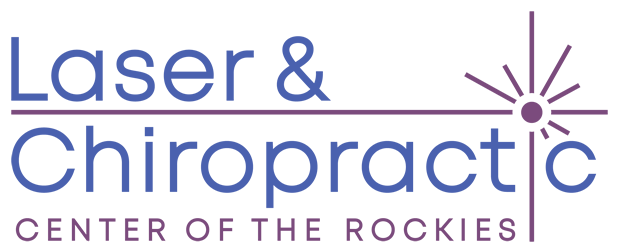
NAET - Nambudripad’s Allergy Elimination Techniques Allergy Elimination and Relief
Allergies Running and Ruining your life? Do you feel like you have tried everything as an allergy sufferer? Don’t give up…there is hope!
Eliminate your allergy symptoms without needles, allergy shots, or medication – completely Drug free!
We are located in Loveland and Serve Fort Collins, Johnstown, Severance, and all of Northern Colorado with NAET treatments
Nambudripad’s Allergy Elimination Techniques or NAET Therapy has been helping patients regain their health for over 35 years. Our unique advantage and success come from identifying the oft-undiagnosed allergies and sensitivities that are the underlying cause of most diseases, disorders, and pain. And then desensitizing the body to those allergies/sensitivities.
What is NAET?
Nambudripad’s Allergy Elimination Techniques also known as NAET, is a unique form of allergy treatment, that can provide relief from adverse allergic reactions. Sensitivities are different than allergies and are virtually undetectable on most traditional allergy tests (more on that below).
Undetected allergies and sensitivities underly most diseases, disorders, and pain. These undetected allergies and sensitivities are barriers holding back the body’s ability to heal. Once barriers are removed that are holding back the body’s health responses, the body can work on healing, the body can work on repair, and the body can work on eliminating symptoms. And the results of that can be seen.
By addressing the body’s allergies and sensitivities, surprising (and welcome) benefits are commonly seen. Conditions that have benefited from desensitizing allergies through NAET:

Relief from Typical Allergies and Sensitivities Symptoms

Elimination of symptoms to environmental agents such as:
- Grasses
- Pollens
- Dust
- Trees
- Perfumes

Elimination of symptoms to animal dander:
- Cats
- Dogs
- Rabbits

Elimination of many food allergies :
- Milk
- Peanuts
- Dairy
- Strawberries
- Fish
- Shellfish
- Egg
- Wheat

Improvement of eye irritations:
- Dry eye
- Weeping eye
- Red eyes
- Watery eyes
Additional Benefits of Eliminating Allergies and Sensitivities with NAET Treatment
While the goal of NAET is not to diagnose or treat diseases, time and again, NAET patients are reporting a reduction of symptoms, improvements, and, in some cases, resolution of other diagnosed conditions that they are suffering from.
Dr., Dr. Devi Nambudripad, MD, DC, RN, LAc, the discoverer and developer of NAET has stated that, “There is hardly any human disease or condition where allergic factors are not involved.” Undiagnosed allergies are often the cause of common or chronic illnesses which, when left untreated, can cause serious harm to the body.
Elimination of migraines from chocolate
Elimination of sore throat from chronic nasal drainage
Elimination of chronic post-nasal drip
Elimination of chronic runny nose and nasal congestion
Reduction/elimination of asthma-type reactions
Elimination of chronic cough due to allergic reactions
Help with respiratory problems
Elimination of swelling and itching of the lips and mouth
Reduction of the tightness in the throat or hoarse voice
Elimination of diarrhea and vomiting
Elimination of itchy, raised bumps (hives)
Elimination of itchy, red skin or swelling of the skin
Less sinusitis
What other conditions have improved while eliminating allergies and sensitivities?
Traditional Allergy Definition
An allergy is an abnormal, adverse physical reaction of the body to certain substances known as allergens (or antigens). When exposed to allergens, allergic individuals develop an excess of an antibody called immunoglobulin E or IgE. The IgE antibodies react with the allergens to release histamines and other chemicals from cell tissues to produce various allergic symptoms. A person can develop allergies to practically any substance. Allergic reactions can involve any part of the body, but most frequently affect the nose, chest, skin, and eyes.
Allergy Stats and Family History
It is estimated that between 35 and 50 million people in the United States suffer from allergies. Many studies have shown conclusively that parents with allergies tend to have children with allergies. Some research suggests that the tendency to develop an allergy of some kind is inherited, although not the tendency to a particular allergy. Some people tend toward allergic reactions. Once a person develops an allergy, others commonly follow.
Part of the difficulty in determining the number of allergy sufferers lies in how broadly or narrowly one defines the term. Medical doctors and scientists often support a narrow definition, asserting that the only true allergies result from the activation of IgE antibodies. Millions of people, however, experience allergic symptoms without the antibody reaction. These people are said to have an intolerance or a hypersensitivity (often simply labeled “a sensitivity”) to particular substances.
The symptoms and discomfort of sensitivity can be every bit as intense and frustrating as that of an allergy, if not more, in some cases.
A Broader Definition of Allergy (and Sensitivity)
For my clinical purposes, I take a wider view and definition of allergies. I define an allergy as: “Any negative or abnormal response in the immune system to something in its environment.” This definition accounts for the frustrating symptoms of a traditional IgE allergy attack as well as making room for the symptoms from hidden “sensitivities” that don’t stimulate IgE production.
On numerous occasions, I have had patients enter my office with their traditional allergy testing results in hand exclaiming that the test indicated that they were not reactive to something, but they knew from experience that they did react to it. Most likely the test was testing for the presence of IgE antibodies. If the patient was reacting to a sensitivity, there would not be antibodies in the blood and therefore would yield a negative result on the test.
I like Dr. Doris Rapp’s definition: “An abnormal response to a food, drug, or something in our environment which usually does not cause symptoms in most people.” Dr. Doris Rapp, Allergies and Your Family.
Book an Appointment for NAET and Get Allergy Relief Today!
Shortcomings of Traditional Allergy Tests
I have patients who come into my clinic that have had prior allergy testing done on them. I commonly hear them comment, while holding their test results in hand, “This says that I’m not allergic to _______ (insert an allergen), yet I know when I eat them, I have a reaction.” Those of you who have been on a quest to find answers for your own allergies and health will recognize how frustrating it can be for traditional testing to let you down.
Understanding the limitations of current testing can help temper the expectations, but it is still frustrating. Two of the more common types of tests are The Skin Scratch Test or Skin Prick Test and Blood Testing.
Skin Scratch Test
This test is done by placing a tiny bit of liquid extract from an allergen (such as pollen or food) and scratching the skin with it. The results are interpreted by looking at the scratched area after 15-20 minutes for signs of reactivity. The biggest drawback of this type of testing is that many food reactions can be delayed up to 72 hours (3 days). If an allergy reaction assessment is made at 20 minutes, but the symptoms come much later, an accurate diagnosis can be missed.
Blood Testing
This test is done by drawing blood and then evaluating it for the presence of IgE antibodies. This test can be beneficial in detecting an IgE-mediated allergy but may fail to detect sensitivities. Sensitivities (as mentioned earlier) can cause symptoms, but not trigger the production of IgE.
Is there a type of testing that can detect both allergy reactions and sensitivity reactions? There is. It is called muscle testing or Muscle Response Testing (MRT).
Nambudripad’s Allergy Elimination Techniques Highlights
1. Non-invasive
2. Done in 30 minutes
3. No side effects from drugs
4. No surgery
5. No ingestion of anything
6. No ingestion of anything
7. Mild to no side-effects
8. Long-lasting in most cases
9. Cost-effective
10. Can be life-changing
About the Laser and Chiropractic Center of the Rockies
Dr. John Erickson is a chiropractor. He practices in Loveland, CO and his clinic serves Loveland and Northern Colorado. He has been practicing nambudripad’s allergy elimination techniques in Loveland since moving there in 2016. Before practicing in Loveland, he has had clinics in Colorado Springs, Denver, and in the Phoenix, AZ area.
He became interested in NAET while attending Palmer College in Chiropractic. After graduating, Dr. Erickson pursued specialized training and has been a NAET practitioner since 1998.


